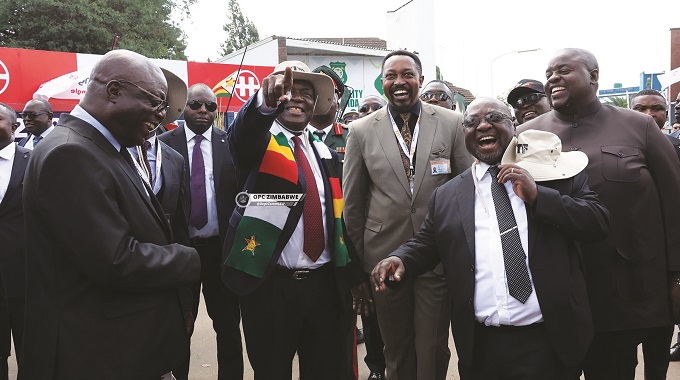Silence condones xenophobia
Ruvheneko Parirenyatwa
ON Saturday, April 18, our Zimbabwean Independence day, I marched in Braamfontein, Johannesburg, from Luthuli House to the Gauteng Legislature with a group of young Africans of different nationalities in solidarity against Xenophobia in South Africa. We were not “allowed” to march in Zimbabwe as we were told to wait patiently and respectfully to allow our leadership to use diplomatic channels to manage the situation. But, going to march in South Africa was not because I was “not allowed” to protest here, it was because the march was happening in South Africa and I was able to participate in it, so I did.
I have had people call me a “coward” for marching in South Africa and not in Zimbabwe. I am surprised at this as surely it is less daunting to march in Zimbabwe where there are no xenophobic attacks than to go and march in the thick of violent acts of inhumane brutality. It is easy for us all to be “activists” on social media. Put up a post with the right image and words, get a couple of hundred likes or retweets and feel like a revolutionary. I do that too. This is what our social sites are there for — for us all to express ourselves quickly and efficiently to the rest of the world. My only gripe is if it ends there. To sit or lay there, sharing videos, judging other people’s posts and challenging why I, Ruvheneko Parirenyatwa, a trained journalist went to South Africa.
It is my job and it is my national passion — not on duty — to fulfil those two parts of me that make the beat in me throb with pain, excitement, love and compassion to go where the action is. I went to see with my own eyes how “bad” this situation is. I went to offer my help to those displaced Africans who are staying in camps after being driven out of their homes by black, under-educated South Africans in townships who are misdirecting their anger at their government to innocent foreigners.
I went where the trouble is — parire nyatwa pacho. I learned that not all South Africans are barbarians. I believed that some South Africans are even embarrassed to be South African right now because they do not understand why their brothers would be doing this to their sisters; why their mothers are doing this to their fathers.
Others have taken to singing songs to condemn this violence, like Jah Prayzah. Unfortunately Facebook took down his song saying the images he used were “too graphic” and didn’t adhere to their “community standards”. I think his video was honest and showed the situation as it is — no filter — no half measures. The beauty of a song is if you don’t like the video, don’t watch it — get it on audio and like My Station, Your Station — ZiFM; enjoy its sound and imagine your own visuals. Others have written articles, others staged boycotts and others closed their borders to everything South African. My simple feeling is that silence pardons these attacks. So if you have nothing to contribute, support those who have already
started a form of protest and stand for something — not just fall for anything.
The protest in South Africa was one of the most frightening things I have ever walked into without knowing what the outcome will be. Of course I knew God would cover me, but I am human; fear always seeps through our most vulnerable crevasses. Among the group who protested was Acie Lumumba from Zimbabwe, Smash Afrika from the popular radio station YFM, South African celebrities, media houses and various people from different nationalities.
The idea behind the march came about on Twitter, when a couple of young minds began questioning why so many of us were Tweeting, posting on Facebook and Instagram, all our appalled and outraged sentiments toward the Xenophobic attacks; yet no one was actively doing anything. The history of South African protests is that of a loud, attention grabbing, sometimes violent nature. So as a new generation, the agreement was to walk silently through town and sit in silence for 30 minutes on the steps of the Gauteng Legislature in what was called A Silent Protest Against Xenophobia. There were not scores of people; not even thousands, but the group that came successfully executed the protest, their presence was felt, onlookers stopped to take pictures and ask questions — while a few joined peacefully —but passionately.
I am glad I did it. I would do it again . . . and again . . . and again until something happens.
Our leaders have spoken, so together with these “diplomatic channels” of theirs, let us each continue to express ourselves loudly and clearly that xenophobia is unacceptable. Period.
We all need each other as Africans, but before we need each other, we should be able to sustain ourselves independently and not be forced to “leave” or tempted to jump borders. We should be able to live in our motherland — but should be afforded the same ability of moving next door for a simply curious “must do” on our list.
Ruvheneko Parirenyatwa is a radio personality, philanthropist, activist and deputy chairperson of the Harare Youth Council.









Comments